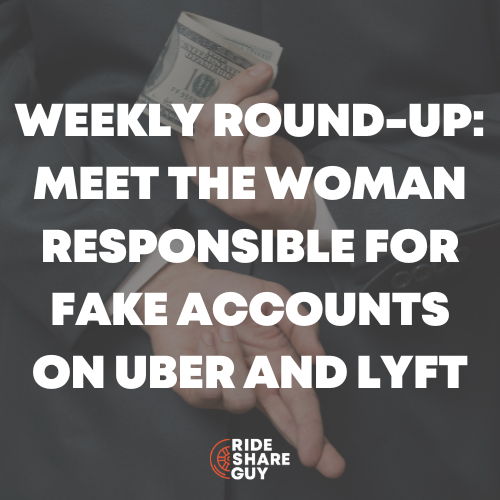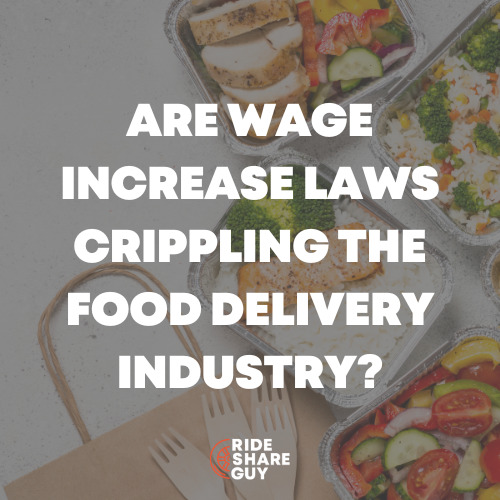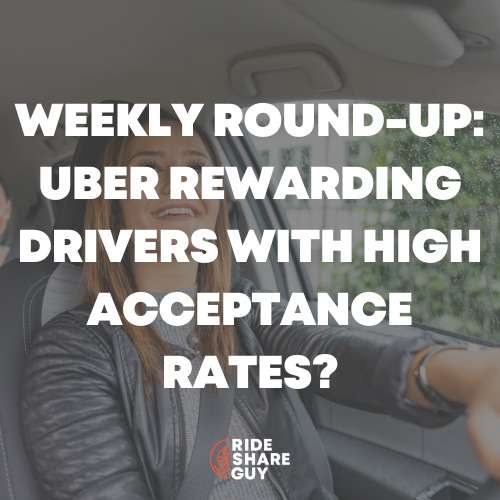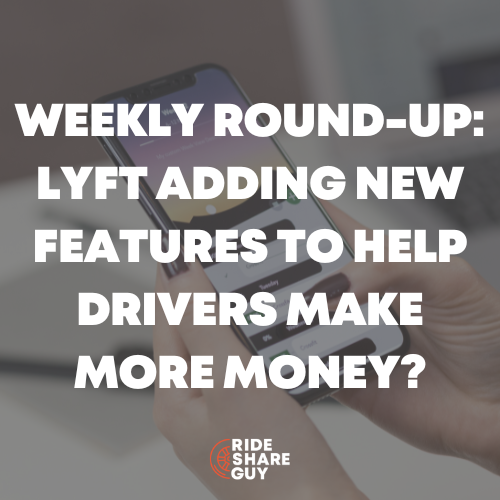In this week’s roundup, senior RSG contributor John Ince covers Waymo’s expansion of its driverless car service in Phoenix, more news on Prop 22 in California, and how grocery delivery companies are growing for the holiday season.
Don’t forget to check out this week’s Rideshare Drivers React on LinkedIn – I share the latest news Uber and Lyft news, plus drivers’ response and commentary. Check it out here.
How Uber and Lyft Are Buying Labor Laws [AmericanProspect]
Sum and Substance: … Proposition 22 is simple. It carves out an exemption for app-based rideshare and delivery workers, allowing companies like Uber, Lyft, and DoorDash to continue misclassifying employees as independent contractors. This exempts those startups from paying minimum wage, carving a loophole in last year’s AB-5 law, which made many independent contractors and freelancers employees and conferred on them a handful of rights and protections.
For those workers, it would mean no eligibility for state unemployment insurance, extremely curtailed worker protections, no overtime, no sick leave, no workplace discrimination protection, and no right to collectively bargain. In essence, it would formalize and enshrine an entirely new category of substandard employment for a class of workers that is made up overwhelmingly of people of color and immigrants. And it would do so permanently: The proposition states that any amendment to the regime would require an unprecedented seven-eighths majority vote in the state legislature.
My Take: American Prospect has been on labor’s side right through this. We’re going to need them if we’re going to win. Proponents of Prop 22 are outspending the opponents 10:1.
Read more about Proposition 22 here.
I’m a software engineer at Uber and I’m voting against Prop 22 [Techcrunch]
Sum and Substance: … I’ve been a software engineer at Uber for two years, and I’ve also been a ride-hail driver. I regularly drove for Lyft in college, and while my day job involves writing code for the Uber Android app, I still make deliveries for app-based companies on my bike to understand the state of the gig economy.
These experiences have made me realize a crucial factor in the gig economy: Uber works because it’s cheap and it’s quick. The instant gratification when we book a ride and a car shows up only minutes later gives us a sense of control. It’s the most convenient thing in the world to go to your friend’s house, the grocery store or the airport at the click of a button.
My Take: Kudos to this Uber engineer. He makes the key points in the article and there’s no corporate veneer. Let’s hope more people will speak out and vote like him if this underfunded prop is going to pass.
Ride-hailing app Ola stripped of London license over safety concerns, shortly after Uber wins reprieve [CNBC.com]
Sum and Substance: LONDON — Ola, a ride-hailing app that competes with Uber, has been stripped of its license by London’s transport regulator over public safety concerns.
The Indian company, which is backed by Japanese tech giant SoftBank, launched its app in London in February. However, Transport for London (TfL) said Sunday that it has refused to grant Ola a new operator’s license after concluding it is not “fit and proper” to hold one.
My Take: This is a reminder that Uber is not alone in its troubles. Ola, which is an Indian company, has run afoul of the same agency that Uber just made peace with. I don’t know the specifics of these negotiations, but this can’t be good for Ola.
An Uber Wage Experiment Worked [NYTimes]
Sum and Substance: New York shows that Uber drivers can have higher wages without triggering an Armageddon.
Seattle and California are among the places trying to ensure higher pay for Uber and Lyft drivers. But the companies and some drivers have said that proposed regulatory changes might put many drivers out of work, force the services to shut down or make many rides unaffordable.
This fight reflects one of the important questions about Uber and Lyft: Can governments rein in some of the harm of these services without wiping out what many people like about them?
In one case, the answer appears to be yes.
My Take: New York City has done some things right, and what they’ve done with wages might be an example for Seattle. Cities all across the country are looking at the Uber/Lyft issues and this example just might be the way.
Uber sells $500M stake in its freight business as the ride-hailing giant works to conserve cash [Techcrunch]
Sum and Substance: ‘One year ago, Uber’s business model could be categorized as an “all of the above approach,” a strategy to generate revenue from all forms of transportation, including ride-hailing, micromobility, logistics and package and food delivery.
The COVID-19 pandemic upended that business strategy, prompting Uber to offload its shared micromobility unit Jump, double down on delivery with its acquisition of Postmates and, now, to sell a stake in its growing, but still unprofitable logistics arm, Uber Freight.
My Take: Looks like Uber is looking for ways to generate cash. This is a good sell … just in case … If Uber keeps losing money at its current rate, the company just might need the funds.
Waymo to launch fully driverless service to the public — a first just in time for the pandemic [WashingtonPost]
Sum and Substance: SAN FRANCISCO — Waymo is launching fully driverless vehicles to the public, a milestone achievement for Silicon Valley’s self-driving car industry that comes during a global pandemic in which efforts to limit person-to-person contact have found a welcoming audience.
The company, a part of Google parent Alphabet, said Thursday it is opening up its driverless ride-hailing service to riders in the Phoenix metro area, enabling anyone in the region to download its app and hail a ride without a driver in the front seat.
Waymo said driverless service would initially be offered to existing users of its Waymo One ride-hailing app, but the service would be expanded to the broader public “over the next several weeks.” …
My Take: This is big. Waymo had been the leader in this space for some time. Frankly I didn’t expect this. But now that this moment is here, I’m excited to see how Waymo does.
Shipt To Add 100K Shoppers For The Holidays [HomeWorld Business]
Sum and Substance: Shipt said it will add 100,000 more shoppers this holiday season, bringing the company’s personal shopper base to over 300,000.
The company is actively seeking shoppers in all markets where it operates. In particular, the company is looking for shoppers in Detroit, Grand Rapids, MI, Minneapolis/St. Paul, New York City, San Francisco, Los Angeles, Houston and Chicago.
Editor’s Note: We had a feeling demand for grocery delivery would increase again, as cases of COVID spike around the country and fears of seasonal flu creep back into public consciousness. It seems like Shipt is jumping on hiring early, adding 100k new shoppers now in preparation for the holiday season.
Thinking of being a Shipt shopper? Check out our Shipt shopper review here.
Instacart announces Senior Support Service to help older customers do their grocery shopping online [Fox Business]
Sum and Substance: Seniors are getting a little help with their online supermarket sweeps.
Grocery delivery service Instacart announced Wednesday its new Senior Support Service hotline aimed at helping customers over the age of 60 order food more seamlessly — and safely — online during the pandemic.
Editor’s Note: This is great! Seniors can now call one number to help get their digital grocery shop set up. Personally, I know my parents have avoided grocery delivery because they can’t figure out the app, and I’m sure there are plenty of people out there like them. This could be a lucrative segment of the population for Instacart!
Considering signing up for Instacart? Learn more about Instacart shopper pay here and sign up to deliver with Instacart here.
Readers, what do you think of this week’s roundup?
-John @ RSG




